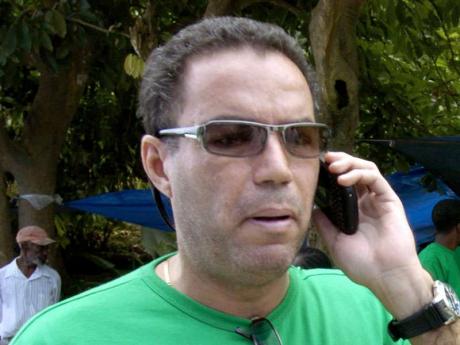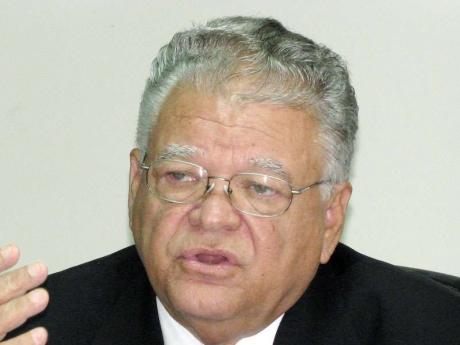Can the JLP learn from history?
Kevin O'Brien Chang, Contributor
In september 2007, the Jamaica Labour Party (JLP) triumphed in a contested general-election victory for the first time since 1980, and tasted real political power for the first time since 1989. You would think that droughts of such durations would make Labourites wary of falling into the same traps that kept them so long in the wilderness. But recent events make you wonder.
First, Karl Samuda said he would not run again for party general secretary, and then announced he was having second thoughts. Then we heard that Horace Chang would likely replace retiring party chairman, Ken Baugh, only for Dr Baugh to say he was staying on. Suddenly, a relatively smooth generational shift - Mr Vaz is 22 years younger than Mr Samuda and Dr Chang is 12 years younger than Dr Baugh - seemed to be possibly degenerating into an old-guard last stand.
Like all entities, political parties must periodically regenerate or die. Not only do changing circumstances require new ideas, but politics demands a lot of energy. Successful governance means implementing sound plans effectively, and even the most brilliant ideas mean nothing if not carried out well.
Getting things done
Which reminds me of something a friend once said about Mr Vaz: "Yes, it's true that lots of people don't like Daryl. But the man gets things done, and that is a rare trait in this country, and especially in politics, where we have plenty of talkers but very few doers."
Since we decide who will run the country by counting ballots, it would be strange if our parties did not also choose officials democratically. So, there is nothing wrong with intra-party political challenges. What matters is how these contests are conducted.
The People's National Party (PNP) has, twice in the past four years, held open leadership contests. Both were fiercely contested and, while a few over-the-top comments were heard, there were no accusations of intimidation or skulduggery, and the final results were gracefully accepted by all.
The JLP has not been able to settle its internal disagreements in so clean-cut a manner, at least not since 1967, when, after Donald Sangster's death, Hugh Shearer was elected prime minister by 16 votes to 15 among members of Parliament. In fact, during the 1990s, leadership disputes fractured the party into political irrelevance.
Now, Edward Seaga has probably contributed to the building of this country in more ways than any other Jamaican and, in the dark days of the late 1970s and 1980, was a truly heroic figure who, arguably, saved Jamaican democracy. But in most other English speaking democracies, he would likely have resigned after his 1989 defeat and, certainly, after another crushing loss in 1993, it was obvious the public no longer considered him a potential prime minister. But by dividing and conquering, he stayed on to be beaten again in 1997, and in a move that was probably unprecedented in the Westminster tradition, lost a fourth straight election in 2002.
The 'Golding' effect
These were the days of the 'gang of seven' and the 'gang of five' - the days of Pearnel Charles' supporters being manhandled at the 1993 Labour conference, of Karl Samuda leaving to win his seat for the PNP in 1993 and returning to win it back for the JLP in 1997. It was also the time of Bruce Golding leaving the JLP to form the National Democratic Movement (NDM) in 1995, resigning as NDM leader after its 2000 by-election defeat, and then returning to the JLP in 2002.
Now, Mr Golding only came back to the JLP in 2002 because he was begged to do so by a party trailing by over 10 points in the polls and on the verge of another wipeout. While the prodigal son's return was not really well handled - Mr Golding wasn't even given an official post - his presence dramatically turned around the JLP's fortunes. At one stage on election night, it almost looked like winning. As it was, the four per cent defeat and 26 seats was the best Labour showing since 1980. And, of course, it was with Mr Golding at the helm that the JLP won in 2007. The JLP seat count from 1989 to 2007 speaks volumes.
The Golding-Brady case
Will the JLP prove both right, or wrong?
Feedback may be sent to changkob@hotmail.com or columns@gleanerjm.com.
- JLP SEAT count
- 1989 - 14
- 1993 - 7
- 1997 - 9
- 2002 - 25
- 2007 - 32


